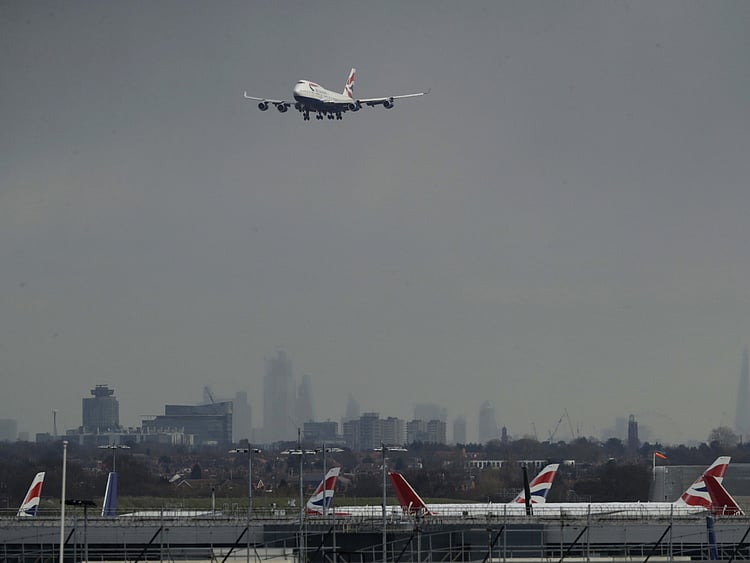UK’s domestic airline is getting grounded
Flybe failed to win a government bailout package and which leaves it with no option

London: British airline Flybe is headed for collapse after the failure of last-ditch talks on a government bailout left the country’s biggest domestic carrier with no alternative.
"As a result of insolvency proceedings, Flybe has ceased to trade and is no longer able to fly or accept bookings," administrator EY said in a statement. "Unfortunately it has been necessary to make the majority of the workforce redundant."
Flybe is owned by the Connect Airways group that includes Virgin Atlantic Airways ltd.. It staved off liquidation in January only after the government came out in support of state intervention and its owners injected extra cash. It was seeking to secure a 100 million pound state loan intended to keep it afloat through a restructuring programme, and cuts to the UK flight tax in this month’s budget.
Undone by the virus
However, prospects for a turnaround dimmed as the coronavirus outbreak swept the globe, leading to a sharp pullback in travel. While Flybe’s owners were seeking to gauge whether a virus-related bailout might be possible, no agreement could be reached.
Prime Minister Boris Johnson announced a rescue of Flybe on January 14, saying the airline provided vital connections to economically challenged parts of Britain, many of them lacking adequate rail links. The move was criticized by other carriers, which said the company shouldn’t be propped up by the state, and green campaigners seeking a clampdown on the industry’s CO2 emissions.
Virgin and co-owners Stobart Group and private-equity firm Cyrus Capital together promised about 30 million pounds in funds, on top of 110 million pounds committed after they bought Flybe in 2019 for 2.2 million pounds.
Got some breaks
Flybe was also able to defer some outstanding taxes, but the vital loan, air passenger duty reform and other measures such as state support for specific routes were left subject to further negotiation. In particular, the government stressed that any funding would be on purely commercial terms, something that was expected to prove a sticking point given the airline’s losses.
Johnson’s cabinet reshuffle last month, which saw the appointment of a new chancellor of the exchequer and a new business secretary, also set back negotiations.
Struggling for some time now
Flybe, which employs 2,400 people, has struggled for years with the narrow margins on regional routes, where demand is lower, together with fluctuating fuel prices and uncertainty around Brexit. The proposed government rescue marked a departure from established policy, after Monarch Airlines, Flybmi and Thomas Cook Group Plc all went to the wall in the past two years.
Network Links
GN StoreDownload our app
© Al Nisr Publishing LLC 2026. All rights reserved.